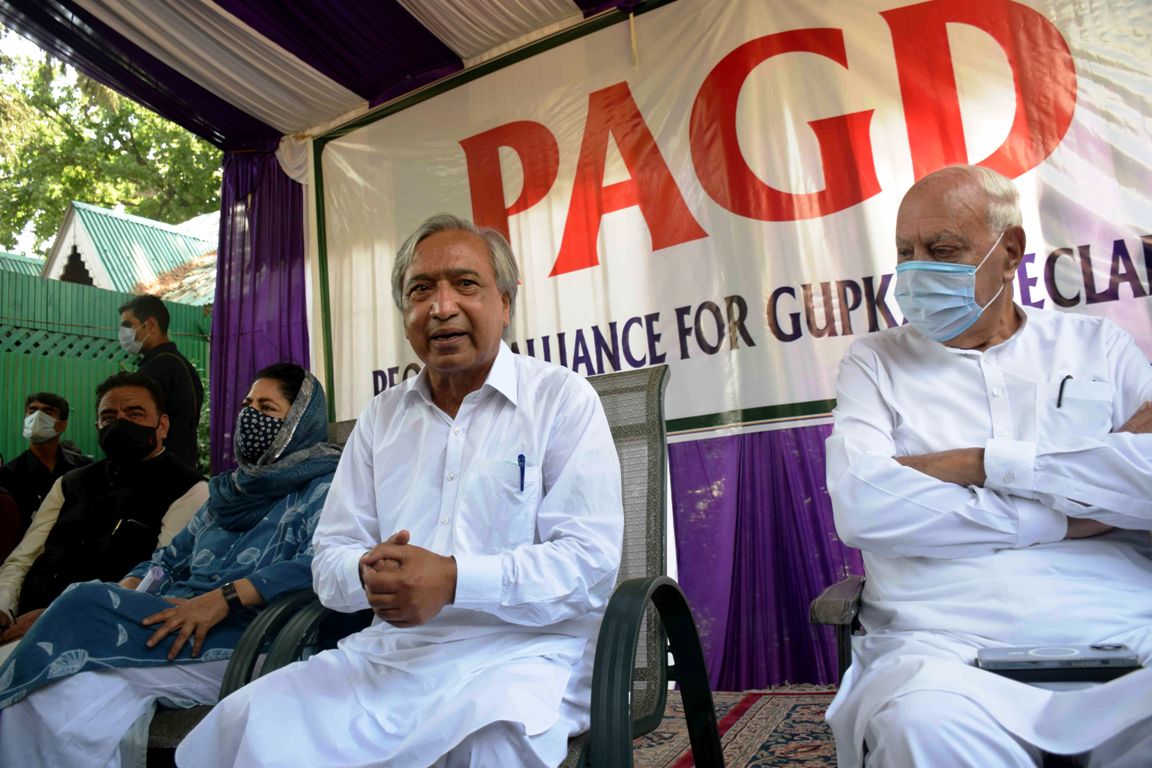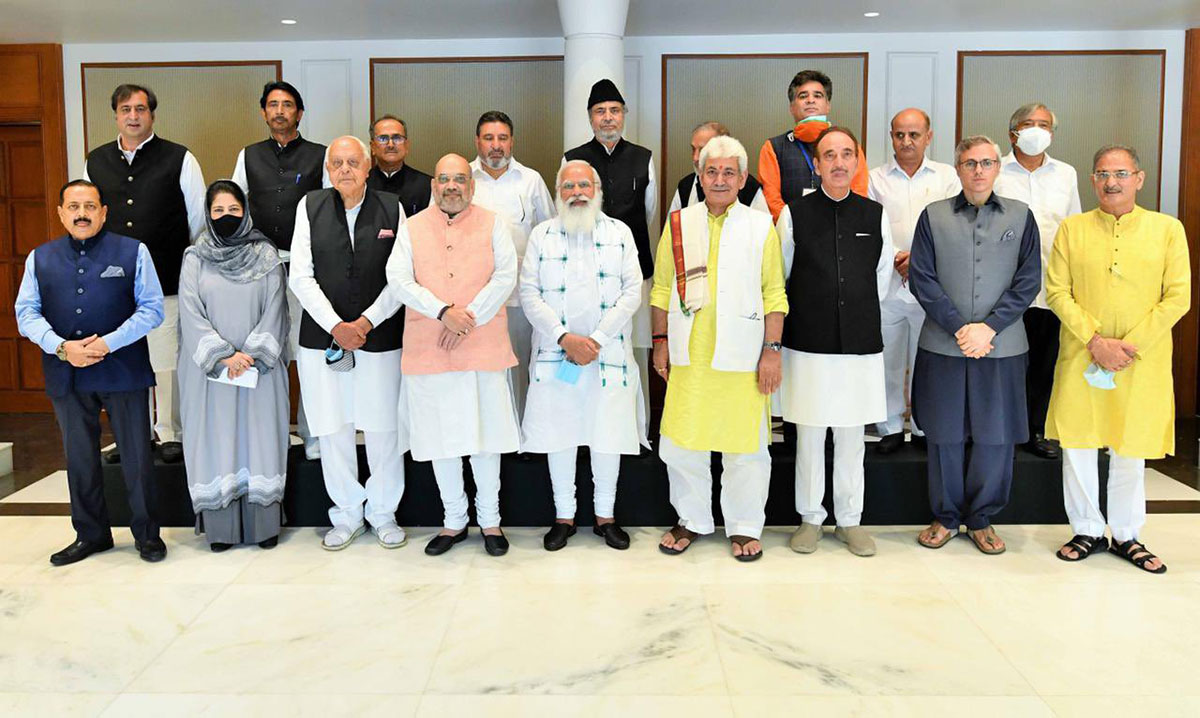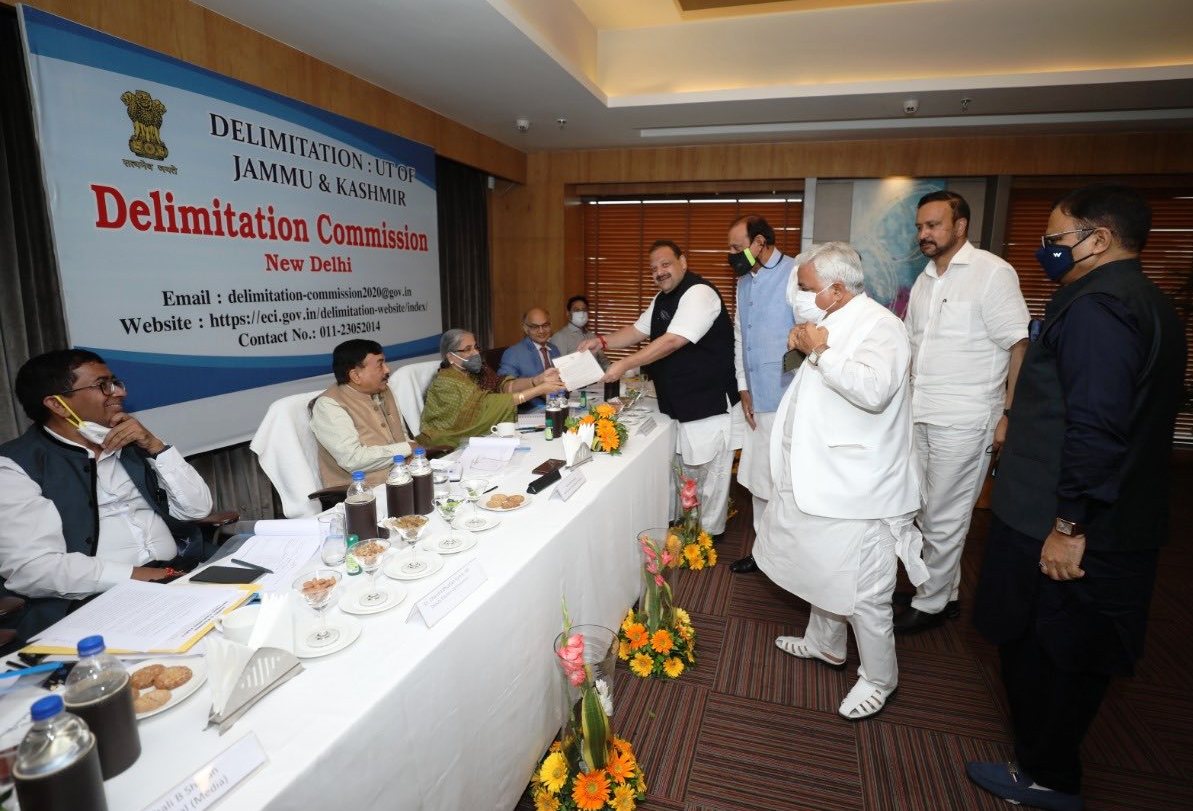So far, the PAGD has been very cautious about deploying the democratic means it often talks about to seek restoration of Article 370, lest it incurs the wrath of the centre, writes Riyaz Wani

In its recent meeting in Srinagar, the People’s Alliance for Gupkar Declaration (PAGD) once again demanded the restoration of Article 370 that granted Jammu and Kashmir its semi-autonomous status under India’s constitution.
The resolution passed at the meeting stated that the withdrawal of Jammu and Kashmir’s autonomous status had damaged “the very bond of our relationship with the Union of India”. The alliance also lamented the nullification of the constitution of Jammu and Kashmir, saying by doing this the government had crossed all limits of constitutionality.
The resolution highlighted the violation of “the civil liberties and democratic rights” and the passing of orders like non-clearance for passports and government services to anyone involved in ‘law and order’ or ‘stone-pelting cases’.
The alliance drew attention to “a sense of insecurity in the regions and community” triggered by making the status of Permanent Residents of erstwhile state redundant. This, it said, had snatched arbitrarily the protection of jobs and land rights.
Besides, the PAGD rued that there had been no redeeming difference to the situation in Kashmir following their meeting with Prime Minister Narendra Modi in June. “Jammu and Kashmir remain as far from Delhi and from the Dil (heart) of India as it has ever been,” said the PAGD spokesperson M Y Tarigami.
Lending the PAGD meeting its significance was that it was held soon after the Taliban takeover of Afghanistan. There are serious apprehensions that the passing of power into the hands of the Taliban in Kabul would have serious security implications in Kashmir. Many experts are saying that New Delhi should change its tack in Kashmir. Former Army chief General Shankar Roychowdhury has called on the government to step up outreach in the former state and reassure people in the region that India “will continue to be a secular democracy”.
The All-Party Meeting
Since its formation last year, the PAGD has only met and passed resolutions. It has stayed short of taking its struggle to the streets and for obvious reasons. Any such move is likely to get New Delhi’s heckles up followed by no-holds-barred retribution. Already, the PAGD has suffered the exit of its important constituent, the People’s Conference of Sajad Lone.

On the other hand, the centre is dismissive of any demand for the restoration of Article 370, not only from Jammu and Kashmir but also from Pakistan, which has sought undoing of constitutional changes for a dialogue to go ahead between the two countries.
At the meeting of Kashmiri leaders with the PM Modi held in June, the dominant accent was on the return of statehood – ironically the demand on which both the centre and the mainstream parties are in agreement. The home minister Amit Shah has, on the floor of the parliament, promised to restore statehood “at an appropriate time.”
Disagreement
But at the meeting, both the PM and the home minister weren’t willing to relent even on this apparent area of agreement. The statehood was the last in the sequence of the steps he set out to return Kashmir to democratic rule. Both the PM and the home minister were, on the contrary, keen on completing the delimitation exercise and holding elections within the union territory framework. As is apparent, the restoration of statehood is going to be a long haul.
The aim is clear: the statehood shall follow once the ideological and strategic objectives behind the withdrawal of Article 370 have been achieved. The delimitation commission is a key to do so: The exercise which is expected to give Jammu more seats in a future Assembly would create an artificial political parity between the two regions. The redrawing of the constituencies, people in Kashmir apprehend, is geared to turn the demographic majority of the union territory into a political minority, further reducing their power in a future political dispensation.
At the same time, the elections in a union territory would change nothing: the ultimate power will continue to vest with the Lieutenant Governor, who will also be in control of the security, which has a dominant role in the affairs of a long-troubled region. The only redeeming change will be some accommodation of the local faces in the regional governance charged with the delivery of some basic services.
Elections First
Would statehood follow the elections? This is unlikely to be the logical next step. Such a prospect would depend on two important conditions: If the party or the coalition in power threatens to challenge the revocation of Article 370, or is seen in a position to overturn some of the administrative and legal measures passed over the last two years, statehood is unlikely to be restored. So, ‘good behaviour’ on the part of an elected government would be an unspoken pre-condition for returning to statehood.

Even that statehood is unlikely to be full: the centre under the BJP may not be inclined to let the local government take over the security, which, in the case of Jammu and Kashmir is the state within the state. And in the absence of control over the security, the future chief minister would be more toothless than his Delhi counterpart. Security forces would be able to carry out their work independent of the elected government which, in turn, would be held accountable for any adverse fallout of their activity while not being responsible for it.
The Flip Side
But what if the BJP loses the next election in 2024 and an opposition party or an alliance of them comes to power at the centre, would it be more generous with making concessions to Jammu and Kashmir? Not necessarily. After having wiped out political resistance in Kashmir if not the militancy by its iron-fist approach, the BJP has created a policy model for future governments to follow. And any resurgence of Hurriyat and for that matter, even the mainstream political opposition would be held against the next party or the parties in power in New Delhi.
So, there is little that the mainstream parties could do. As for Article 370, the only remote hope it could be reinstated is if the Supreme Court overturns the government move. But so far the court has not found time to hear the petitions challenging the revocation of Jammu and Kashmir autonomy. And it looks unlikely to happen in near future.

As for the BJP-ruled centre or the ruling dispensation that could take over from it at the centre after 2024, it seems out of the question that they would be willing to discuss the reversal of the withdrawal of Article 370. Even the return of full statehood could prove to be elusive.
If there were any illusions on this score they must have been set to rest by the recent visit of the Congress leader Rahul Gandhi to Srinagar. While Gandhi sought statehood for Jammu and Kashmir, he stayed well short of calling for the restoration of Article 370. Apart from Congress, this diffidence to even to talk of reviewing repeal of Article 370, let alone do something about it, applies to all political parties across the country. And people in Kashmir are deeply conscious of this fact. If anything, this shows how the leverage of Kashmiris with regard to forcing or persuading New Delhi to terms has reached its nadir now.
People in Jammu and Kashmir would certainly want elections to take place and an elected government in power. It is now for over three years that the erstwhile state has been under central rule. So, people would want the elected representatives they could approach to resolve their issues.
The PAGD leaders, however, have made it clear that they were committed to the demand for a reversal of the withdrawal of the autonomy, saying they will fight for it through democratic means. So far, the alliance has been very cautious about deploying these means. But even if such means are used, it is a moot point if they would earn the grouping any leverage with the current dispensation.















